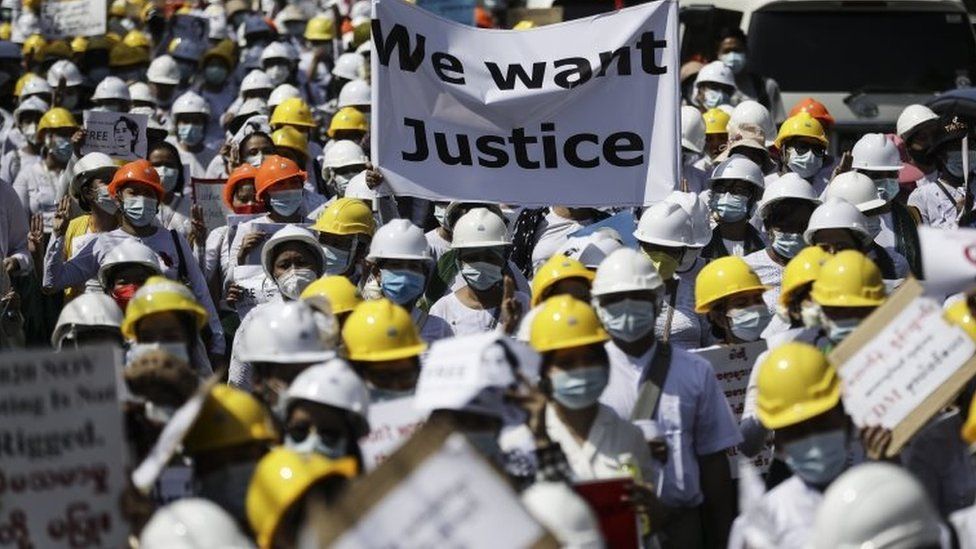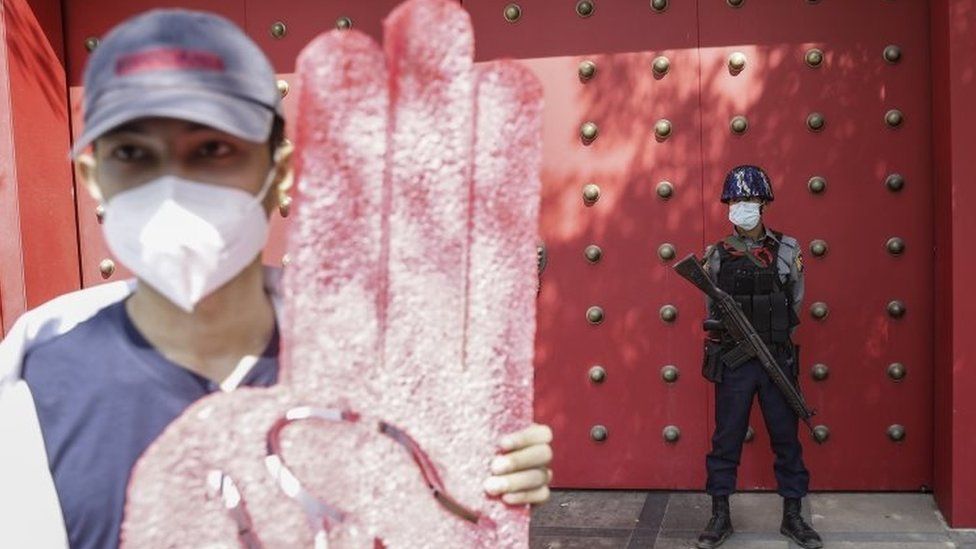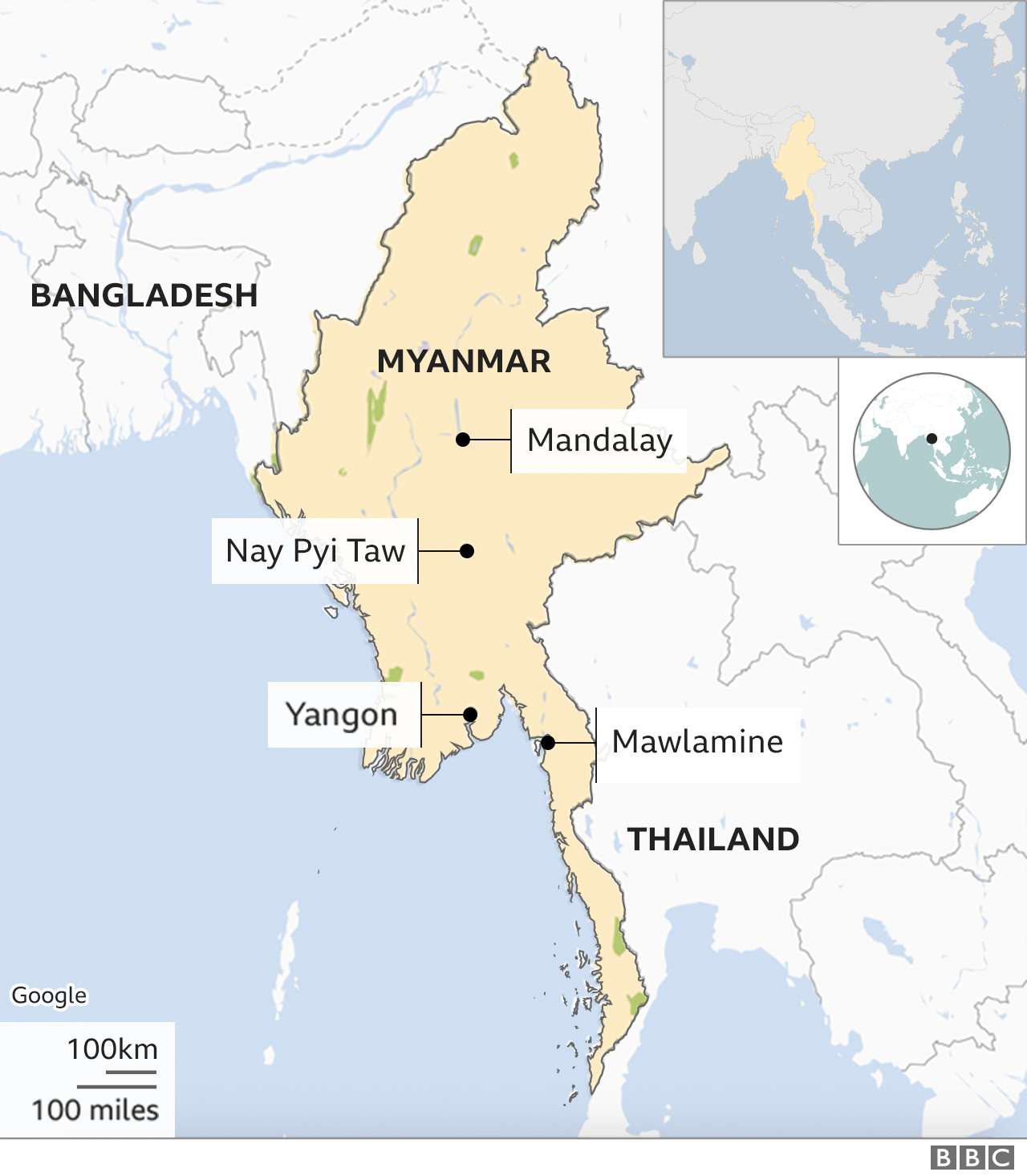Myanmar coup: Mass protests defy military leader's plea
 image copyrightEPA
image copyrightEPAFresh mass protests are taking place against a coup in Myanmar, defying a plea from its leader to "join hands" with the military.
On the nation's Union Day holiday, Gen Min Aung Hlaing called for "unity" to prevent "disintegration".
But Friday continued the pattern of daily rallies demanding the release of detained elected leaders, including Aung San Suu Kyi.
There were reports of rubber bullets fired by police in Mawlamine.
In his TV address to the nation on Thursday, Gen Hlaing said those protesting had been "incited" and again asked them to work for the country without "focusing on the emotion".
The military marked Union Day by granting amnesty to, and ordering the release of, more than 23,000 prisoners, including 55 foreigners. Mass pardons are common on national days, often to reduce numbers in overcrowded prisons.
Union Day celebrates the signing in 1947 of an agreement between the government under Ms Suu Kyi's father, Aung San, and the Shan, Kachin and Chin people that marked the unification of the republic.
 image copyrightEPA
image copyrightEPAIn his address, Gen Hlaing called on people to stay in their houses, citing the dangers of the pandemic.
But the protests continued on Friday. They remained mostly peaceful, although Radio Free Asia footage showed police charging at protesters in the city of Mawlamine.
A Red Cross official told Reuters three people were injured by rubber bullets.
Protests have also continued in the biggest city, Yangon, the capital Nay Pyi Taw, the coastal town of Dawei, and Myitkyina in northern Kachin state, among others.
The US has been among those demanding a return to democracy and the release of civilian leaders. It has targeted a number of officials and companies with sanctions.
Meanwhile, a protester who was shot in the head during a protest on Tuesday remains in critical condition.
Mya Thwe Thwe Khaing was hurt when police tried to disperse protesters in Nay Pyi Taw using water cannon, rubber bullets and live rounds.
The wound was consistent with one from live ammunition, rights groups say.
The military seized control on 1 February following a general election which Ms Suu Kyi's National League for Democracy won by a landslide.
The armed forces had backed the opposition, which was demanding a rerun of the vote. It claimed widespread fraud, an accusation rejected by the electoral commission.
The coup was staged as a new session of parliament was set to open.
Ms Suu Kyi is under house arrest and has been charged with possessing illegally imported walkie-talkies. Many other NLD officials have also been detained.

Myanmar - the basics
- Myanmar, also known as Burma, was long considered a pariah state while under the rule of an oppressive military junta from 1962 to 2011
- A gradual liberalisation began in 2010, leading to free elections in 2015 and the installation of a government led by Aung San Suu Kyi the following year
- An army operation against alleged terrorists in Rakhine State has since driven more than half a million Muslim Rohingyas to flee to neighbouring Bangladesh, in what the UN called a "textbook example of ethnic cleansing"
- Aung San Suu Kyi and her government were overthrown in an army coup on 1 February following a landslide NLD win in November's election




No comments